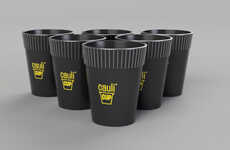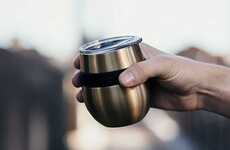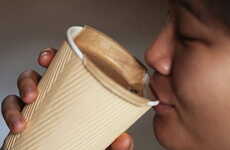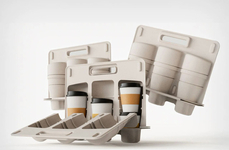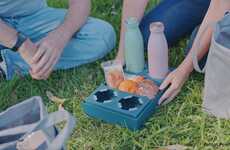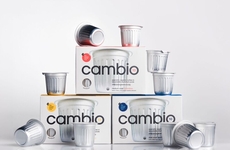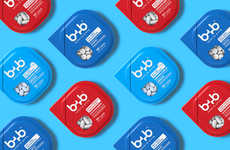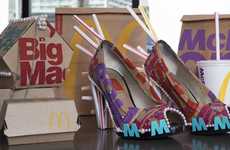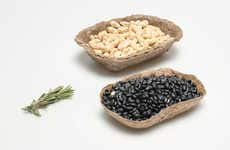
The 'Huskee' Cups are Created Using Farm Waste Over Ceramic
Michael Hemsworth — May 31, 2017 — Eco
The 'Huskee' Cups are a newly created option when it comes to coffee cups that are designed to replace ceramic designs in order to offer a more eco-friendly product. Requiring less energy to be crafted than ceramic options, the cups are crafted from the husks of coffee beans which actually enables them to retain heat far better than the traditional cups and mugs out there.
The 'Huskee' Cups are crafted from the husks of coffee beans along with an organic resin that makes them inherently eco-friendly and sustainable to use in the home or coffee shop. Each of the cups are quite durable and are safe enough to be placed in the dishwasher without worry about wear.
The 'Huskee' Cups are crafted from the husks of coffee beans along with an organic resin that makes them inherently eco-friendly and sustainable to use in the home or coffee shop. Each of the cups are quite durable and are safe enough to be placed in the dishwasher without worry about wear.
Trend Themes
1. Eco-friendly Coffee Cups - The creation of eco-friendly coffee cups made from alternative materials presents an opportunity for businesses to cater to environmentally conscious consumers.
2. Sustainability in Product Design - The use of sustainable materials in product design can help businesses differentiate themselves from competitors and appeal to environmentally conscious consumers.
3. Reduction of Waste in Manufacturing - Reducing waste in the manufacturing process can lead to cost savings for businesses while appealing to consumers who prioritize sustainability in their purchasing decisions.
Industry Implications
1. Coffee Shops - Coffee shops can differentiate themselves and appeal to environmentally conscious consumers through the use of eco-friendly coffee cups made from alternative materials such as the 'Huskee' cups.
2. Retail - Retail businesses can cater to consumers who prioritize sustainability by offering eco-friendly coffee cups made from alternative materials on store shelves.
3. Manufacturing - Manufacturing businesses can explore the use of sustainable materials and reduction of waste in their production processes to appeal to consumers who prioritize sustainability and potentially lower costs.
6.1
Score
Popularity
Activity
Freshness

